Dogs often go crazy for peanut butter, a versatile treat perfect for stuffing Kongs, hiding pills, or spreading on lick mats. Freezing these peanut butter-filled toys can extend the enjoyment, leaving most pups in blissful licking heaven until every last bit is gone. However, it’s crucial for every dog owner to understand that not all peanut butter is created equal. Buying the right, dog-safe peanut butter is a vital responsibility to ensure your furry friend’s health and safety.
This comprehensive guide will help you navigate the aisles, identifying What Peanut Butter Can Dogs Not Eat, what ingredients to avoid, and which brands get the veterinarian’s stamp of approval. We’ll also delve into the serious dangers of consuming unsafe types and explore healthy alternatives for your canine companion. Ensuring your dog’s snacks are safe is just as important as their regular meals, and understanding the nuances of ingredients can make all the difference. list of what foods dogs should not eat
What to Look for in Dog-Safe Peanut Butter Brands
When selecting peanut butter for your dog, the simpler the ingredient list, the better. Your best bet is to opt for natural peanut butter that contains no added sugar or artificial sweeteners like xylitol. Always check the label for terms such as “no added salt” or “unsalted.” Ingredients like preservatives, hydrogenated vegetable oils, and excessive added sugar should be avoided, as these can be detrimental to your dog’s health over time.
Ideally, dog-safe peanut butter should contain no more than two ingredients: peanuts and a minimal amount of salt, or even better, just peanuts. Xylitol is a particularly dangerous ingredient to watch out for; it’s sometimes referred to as “birch sugar” on ingredient lists. Being vigilant for both terms is essential to prevent accidental poisoning.
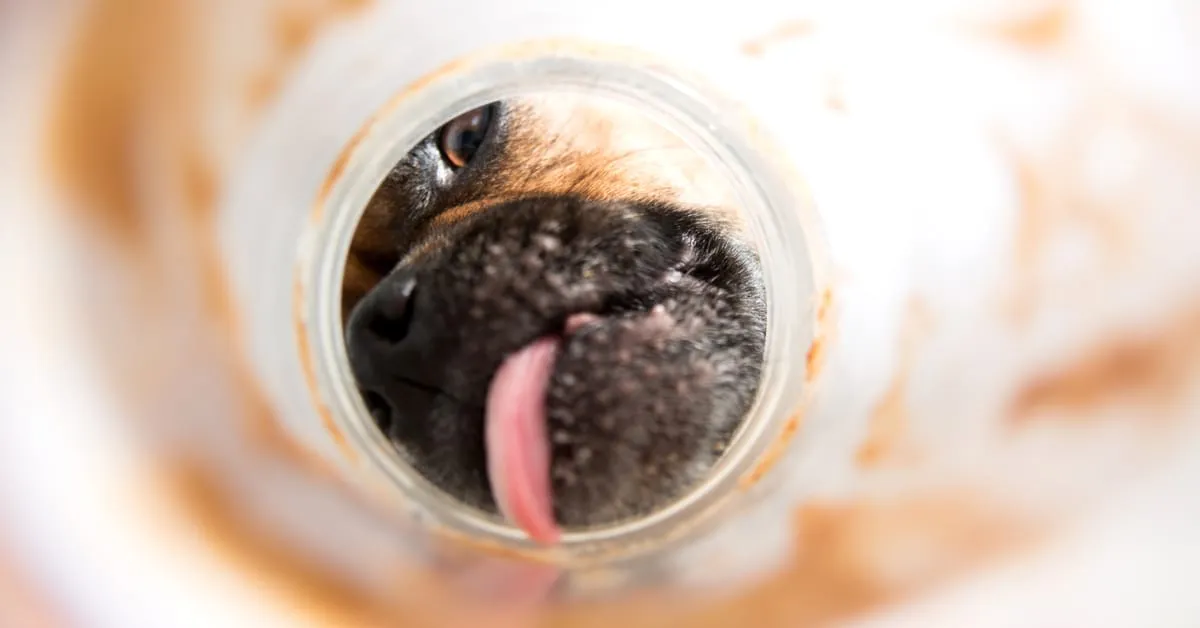 A dog looking curiously at a jar of peanut butter, highlighting the importance of checking ingredients
A dog looking curiously at a jar of peanut butter, highlighting the importance of checking ingredients
Dangers of Xylitol and Birch Sugar
Xylitol is a common sugar substitute found in many “sugar-free” products, including chewing gums, candies, and some peanut butter brands. It is highly toxic to dogs, even in small amounts. Never purchase sugar-free peanut butter for your dog, as the presence of xylitol can lead to severe health complications.
Dogs who ingest foods containing xylitol can suffer from a range of adverse effects, including:
- Hypoglycemia: A rapid and severe drop in blood sugar levels.
- Seizures: Caused by the sudden and drastic changes in blood sugar.
- Liver Failure: Xylitol can lead to acute liver damage, which can be fatal.
- Death: In severe cases, xylitol poisoning can be deadly if not treated promptly.
If you suspect your dog has consumed anything containing xylitol, seek immediate veterinary care. This substance can be absorbed very rapidly into their system, making quick action critical for a positive outcome. For more information on ingredients like this, understanding what foods can dogs can not eat is vital.
Safe Brands of Peanut Butter for Dogs
Finding truly safe peanut butter can be challenging with so many options on the market. Dog Lab, a highly respected company known for reviewing pet products, has conducted extensive research by surveying dog owners, consulting veterinarians, canine nutritionists, and animal behaviorists. They tested over 50 types of peanut butter to identify the healthiest options for dogs.
According to Dog Lab’s findings, their top recommendation for the best peanut butter for dogs is Whole Foods’ 365 brand smooth peanut butter. The 365 Everyday Value Organic Peanut Butter stands out as one of the safest choices because it contains just one ingredient: peanuts! This “less is more” approach ensures no extra salt, sugar, additives, or unpronounceable chemicals are included, offering 100% natural, creamy peanut butter.
Another excellent and budget-friendly alternative, very similar to the 365 brand, is Trader Joe’s No Salt Peanut Butter. For dogs and owners who prefer a bit of crunch, Teddie Super Chunky Peanut Butter was also selected as a top choice. Furthermore, Poochie Peanut Butter, a brand specifically formulated for dogs, is highly recommended. This unique peanut butter incorporates health-boosting natural ingredients such as turmeric, flaxseed, parsley, and ginger, and generously donates 10% of its profits to animal shelters.
For a comprehensive list of 16 tested, safe peanut butter treats for dogs, you can visit DogLab.com.
Dog Safe Peanut Butter Brands
- Whole Foods 365 Everyday Value Organic Peanut Butter
- Trader Joe’s Peanut Butter (No Salt)
- Teddie Super Chunky Peanut Butter
- Poochie Dog Peanut Butter
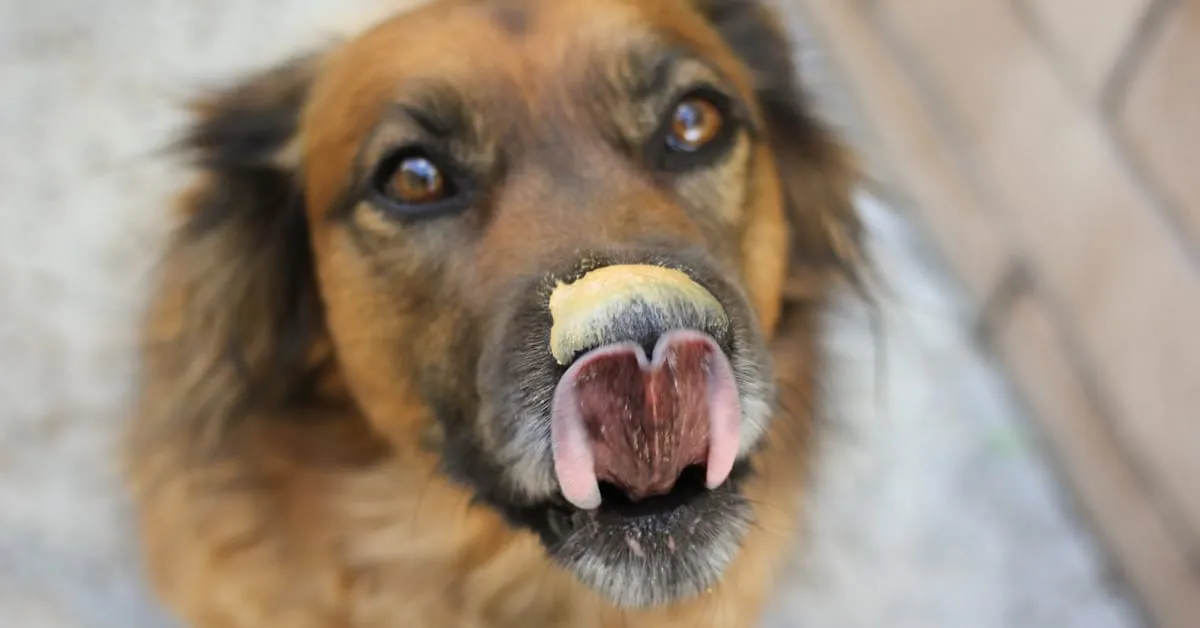 A dog with a bit of peanut butter on its nose, demonstrating a safe and enjoyable treat
A dog with a bit of peanut butter on its nose, demonstrating a safe and enjoyable treat
A Gentle Reminder on Moderation
Even with safe brands, moderation is key. While peanut butter does contain healthy fats, overfeeding can lead to serious health issues. High-fat diets and excessive calories contribute to canine obesity and can increase the risk of life-threatening pancreatitis. Therefore, even if the peanut butter is dog-safe, too much can still be detrimental to your dog’s overall health and well-being. Always remember that treats should only make up a small portion of your dog’s daily caloric intake.
Peanut Butter Brands to NEVER Feed Your Dog
Understanding what peanut butter can dogs not eat means knowing which popular brands to avoid. Many common grocery store staples, while convenient for human consumption, contain added trans fats, excessive sweeteners, and other unnecessary ingredients that are harmful to dogs. Pet owners should never share the following peanut butter brands with their dogs:
- Skippy peanut butter
- Peter Pan brand PB
- Jif peanut butter
- Nuts ‘n More
- Krush Nutrition
- Go Nuts Co
- Amazon brand/Happy Belly PB
It’s important to note that just because a peanut butter product is labeled “xylitol-free” doesn’t automatically make it dog-friendly. Some “natural” peanut butters, such as Skippy Natural or Jif Natural peanut butter spread, may be free of xylitol but are still not recommended due to other additives like corn syrup and trans fats. Dog Lab’s research also highlights certain peanut butters created by pet brands that are not ideal, including Kong Real Peanut Butter (due to sugar and hydrogenated vegetable oil) and DogButter (which contains palm oil). This extensive list helps dog owners identify what can dogs eat and not eat list for snacks and treats.
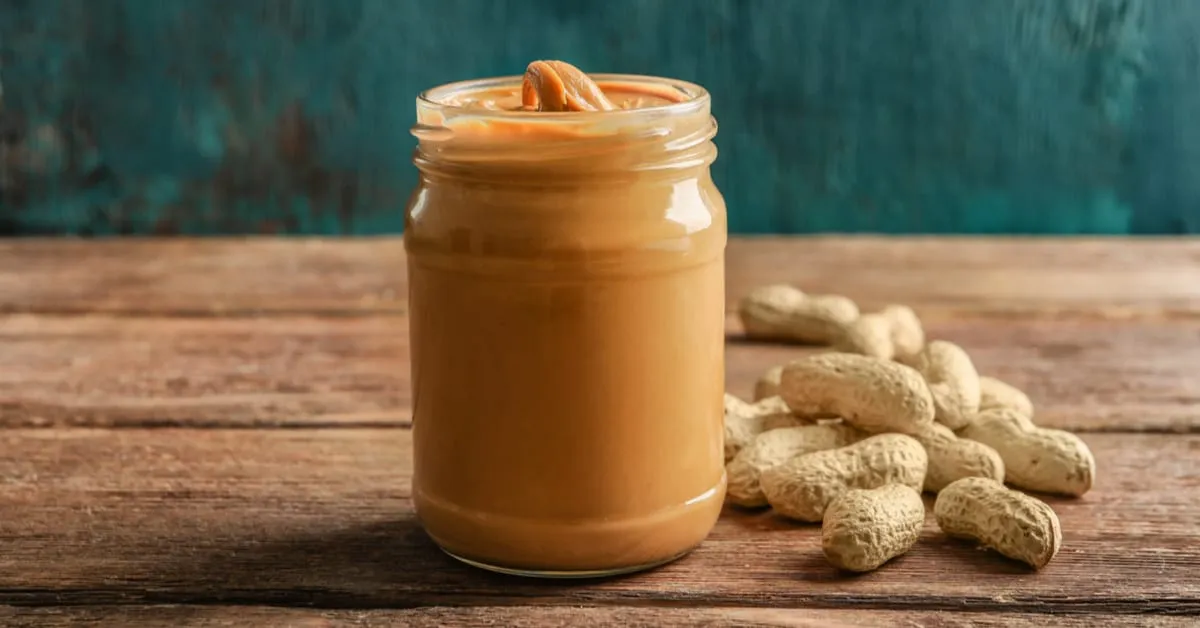 Various popular peanut butter brands on a shelf, many of which contain unsafe ingredients for dogs
Various popular peanut butter brands on a shelf, many of which contain unsafe ingredients for dogs
DIY Peanut Butter: A Healthy Homemade Option
If you want absolute control over the ingredients, making your own homemade peanut butter is surprisingly easy and a fantastic healthy treat option. All you need are unsalted peanuts and a food processor. Simply add the peanuts to the food processor and blend for up to 10 minutes, or until you achieve your desired smooth consistency. This method ensures you know exactly what your dog is consuming, free from any hidden sugars, salts, or harmful additives. It’s a great way to guarantee your dog gets a safe, pure peanut butter treat.
Peanut Butter Alternatives for Dogs
It might be hard to believe, but some dogs simply don’t like peanut butter, or they might have allergies. Fortunately, there are plenty of safe nut butter alternatives and even nut-free licking options available.
Almond butter, sunflower seed butter, and cashew butter are generally considered safe alternatives for dogs with peanut allergies or those who just aren’t fans of peanuts. However, these nutty butters also have a very high-fat content and should always be given in strict moderation. Remember, treats and snacks should only make up approximately 10% of your dog’s daily diet; the majority of their nutrients should come from their balanced kibble. For certain breeds like French Bulldogs, being extra cautious about their diet is essential, understanding what can french bulldogs not eat is a good start.
Healthy peanut butter alternatives that can be used for stuffing treat toys and are not derived from nuts include:
- Low-fat plain Greek yogurt
- Cream cheese
- Pumpkin puree
- Green beans
- Watermelon
- Baby food (ensure it’s meat-based and free from onion/garlic)
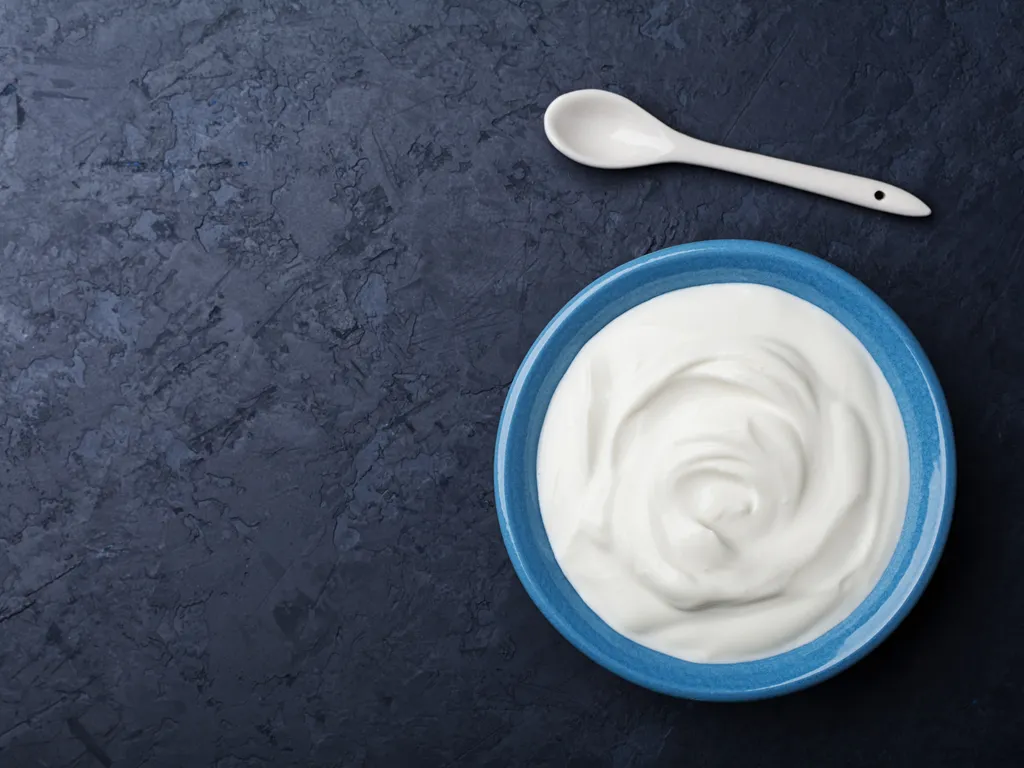 A bowl of plain Greek yogurt, a healthy and safe alternative to peanut butter for dogs
A bowl of plain Greek yogurt, a healthy and safe alternative to peanut butter for dogs
Nuts to Avoid
Beyond peanut butter, it’s important to be aware that several types of nuts are either unhealthy or outright toxic to dogs. Always keep the following nuts out of your dog’s reach:
- Hazelnuts
- Macadamia nuts
- Pecans
- Walnuts
- Pistachios
Knowing what are some foods that dogs can t eat extends beyond just peanut butter and nuts, encompassing a wide range of common human foods.
Best Dog Toys for Treat Stuffing
Engaging your dog’s mind with treat-stuffing toys is an excellent way to provide mental stimulation and extend their enjoyment of safe treats like peanut butter or its alternatives. These toys are perfect for keeping boredom at bay and encouraging problem-solving. Some popular options include durable puzzle toys with various compartments and openings designed to hold spreads and small treats. Look for toys that challenge your dog to chew, squeeze, or manipulate them to release the hidden goodies. Many interactive toys are available that can be filled with peanut butter, yogurt, or pumpkin puree, offering hours of entertainment and a rewarding challenge for your pup.
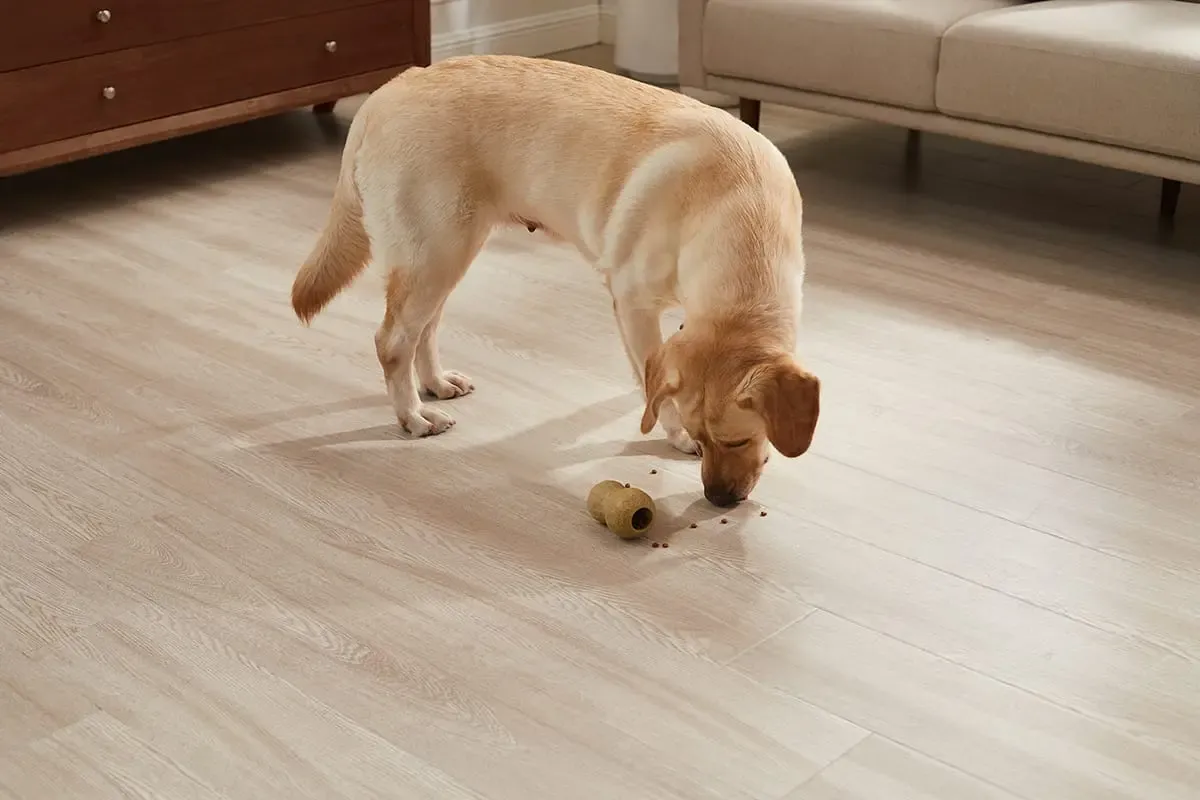 A durable treat-stuffing dog toy designed to hold peanut butter or other safe alternatives
A durable treat-stuffing dog toy designed to hold peanut butter or other safe alternatives
Conclusion
Understanding what peanut butter can dogs not eat is a critical part of responsible pet ownership. While dogs adore peanut butter, vigilance regarding ingredients like xylitol (birch sugar) and other harmful additives is paramount for their safety. Always opt for natural, unsalted peanut butter with a minimal ingredient list, or consider making your own at home. Remember that moderation is essential, even with dog-safe options, to prevent issues like obesity and pancreatitis. Explore the many healthy alternatives and utilize treat-stuffing toys to provide engaging and safe enrichment for your beloved canine companion. By being informed and making conscious choices, you can ensure your dog enjoys their treats safely and happily.
